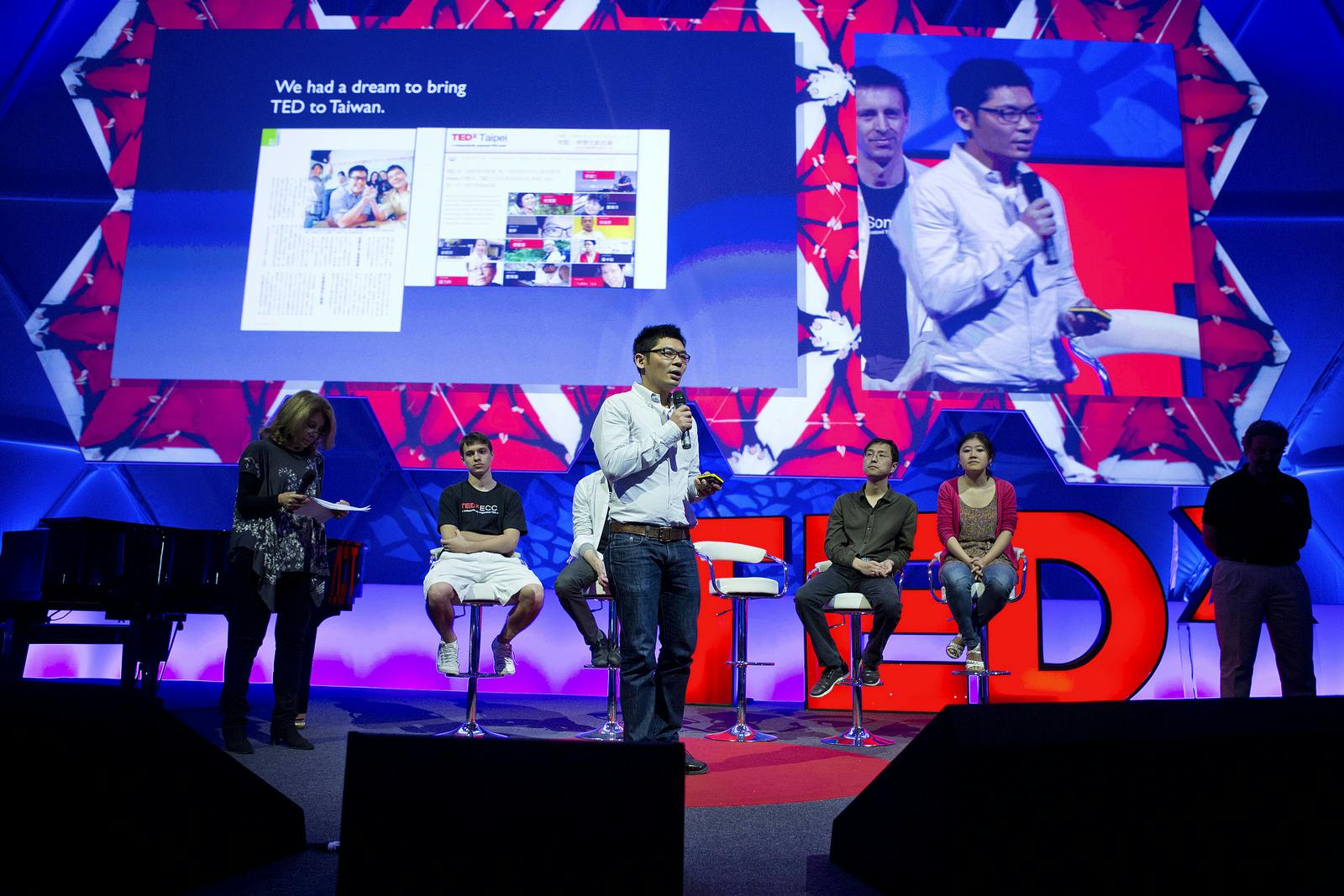I’ve been blindfolded a few times. And I’ve walked a tightrope or two. It’s the standard fare at a certain type of annual company meeting I became accustomed to in my career in corporate environments like IAC, BCG, and GE Capital.
The formula: take a carefully selected group of your top leaders, review strategies and financial projections, and tack on a team-building exercise (hence the blindfolds, ropes, and trust falls).
That’s what I expected when I headed to my first staff retreat at TED. I was just one month into my job as TEDx executive director, and I was eager to share my vision for future of TEDx.
But when I got there I realized this was no ordinary company meeting — it was different. There were no business plans, no financial projections, no special perks for senior leaders. Instead most of the programming took place in an auditorium, and specifically around a “TED stage” with a red circle carpet on it. Every single employee was invited and included. One after another, staff members at every level in the organization got up to give their own version of a TED Talk, sharing ideas that pertained to either work or their personal lives. Some were more serious like the future of AI and machine learning or a workshop on how to create stop motion animation hosted by our graphics team, while others were more personal: the virtues and art of pickling, the joys of surfing the cold waters of the Long Island Sound, and a talk on what everyone was like in high school based on data analysis.
It was obvious that the talks were carefully curated and that the presenters invested a lot of time to prepare, but it was clear they did it by their own initiative. In the evening we moved to another stage for the ‘talent show’, where again staff members took the stage, this time as dancers, musicians, and comedians. The morning presentation given by our much-loved CFO — sporting a Hawaiian shirt and cargo shorts — was probably the shortest of the day and (sorry Tom) entirely forgotten by that evening.
Living the culture
At first, I was perplexed. How do these people get anything done? Don’t we need to know what everyone is doing and how to hold each other accountable? But by the time I’d spent a year at TED and returned to my second annual retreat, I understood the huge impact this gathering had on the lifeblood of our organization. This retreat had nothing to do with business plans and everything to do with culture. We created an internal TED conference to reinforce and celebrate our deepest values: creativity, inclusivity and storytelling. I had a front row seat to my colleagues’ hidden talents and passion projects and to the ingenuity that sits within the TED organization. This beautiful mosaic of creativity coming from every part of the organization sent a clear message of what we were about.
As an employee I left feeling ‘this place is amazing!’ As a business leader I thought ‘this is interesting!’ I observed that at TED we’ve been using our very own world-famous conference format to advance our internal culture. Once a year, out of public view, with every single employee, we stage our own version of a TED event to reinforce our values and expand our thinking. That’s when it clicked: this could work for many other companies, as a way to transform them from the inside.
TED engagement
And so over the next few months I worked with my team to redesign and re-launch a program that opens up our format and tools to companies of any size and in any country — we named it TEDx Business. TEDx Business enables companies to organize private, staff-only events in the style of the TED Conference.
To date, more than 300 companies have produced internal TEDx conferences as a way to engage employees and promote a culture of innovation. Some create events in their headquarters; others host smaller events in regional offices. They stage ideas from across their companies and selectively bring in outside speakers to seed new ideas. We’ve seen companies like P&G (TEDxP&GSingapore) and PricewaterhouseCoopers (TEDxPwCMilan) successfully establish dynamic TEDx Business programs for their employees. And these events have an impact. At Johnson & Johnson for example, 97% of participants said that TEDxJNJ reaffirmed their commitment to the company values and 99% said they would bring new ideas to their teams and be more engaged with their work.
In the past few years, there’s been a noticeable shift in what we expect from our workplaces. It’s not just about having a job; it’s about creating real impact within an organization. The most forward-thinking businesses recognize the importance of meeting and exceeding those expectations — for the sake of company culture, retention, and ultimately, for achieving goals. Re-thinking the annual company meeting could be a first step in this direction.
